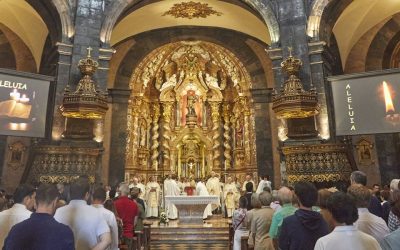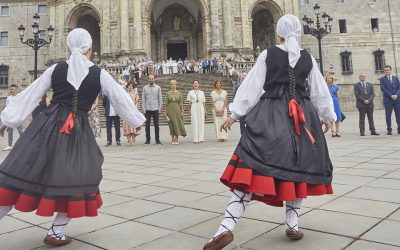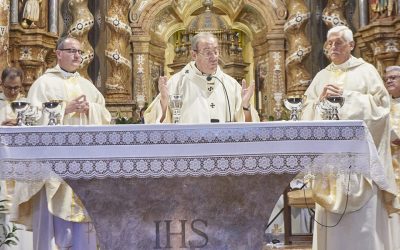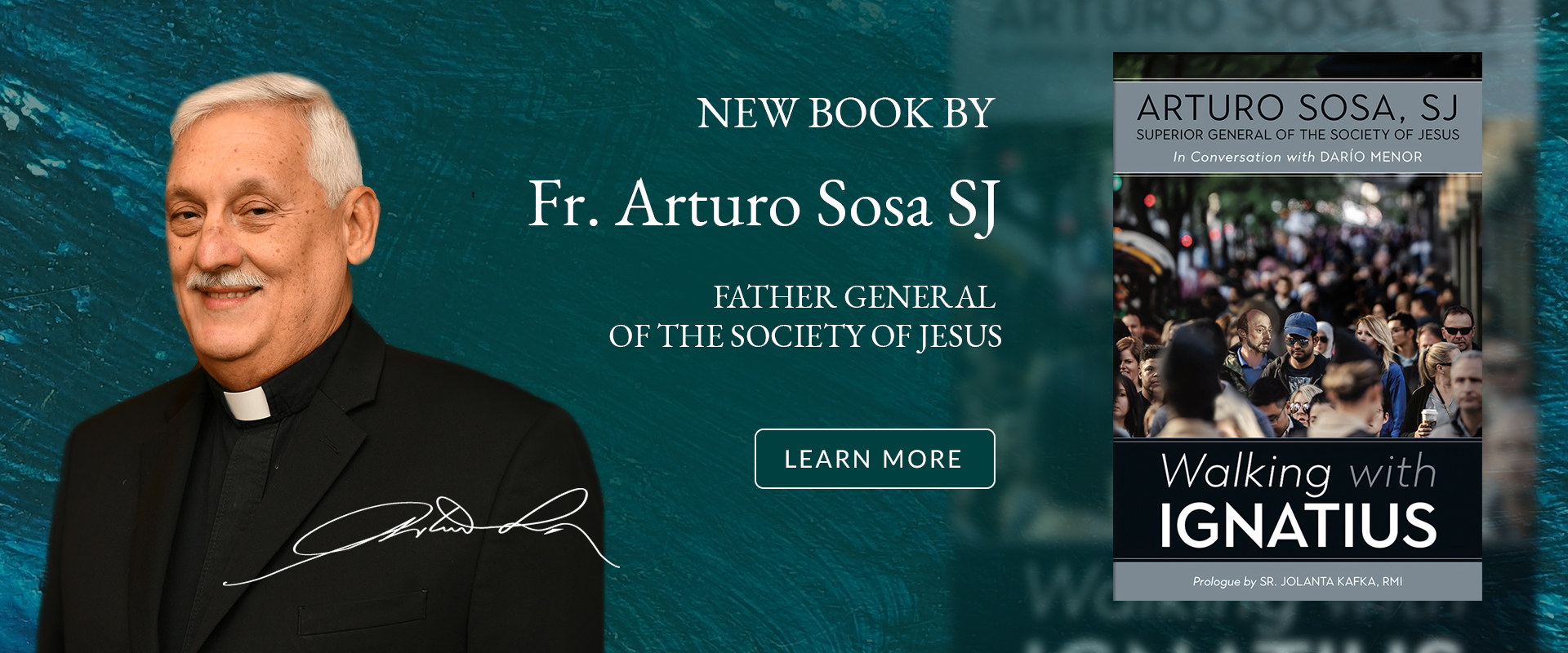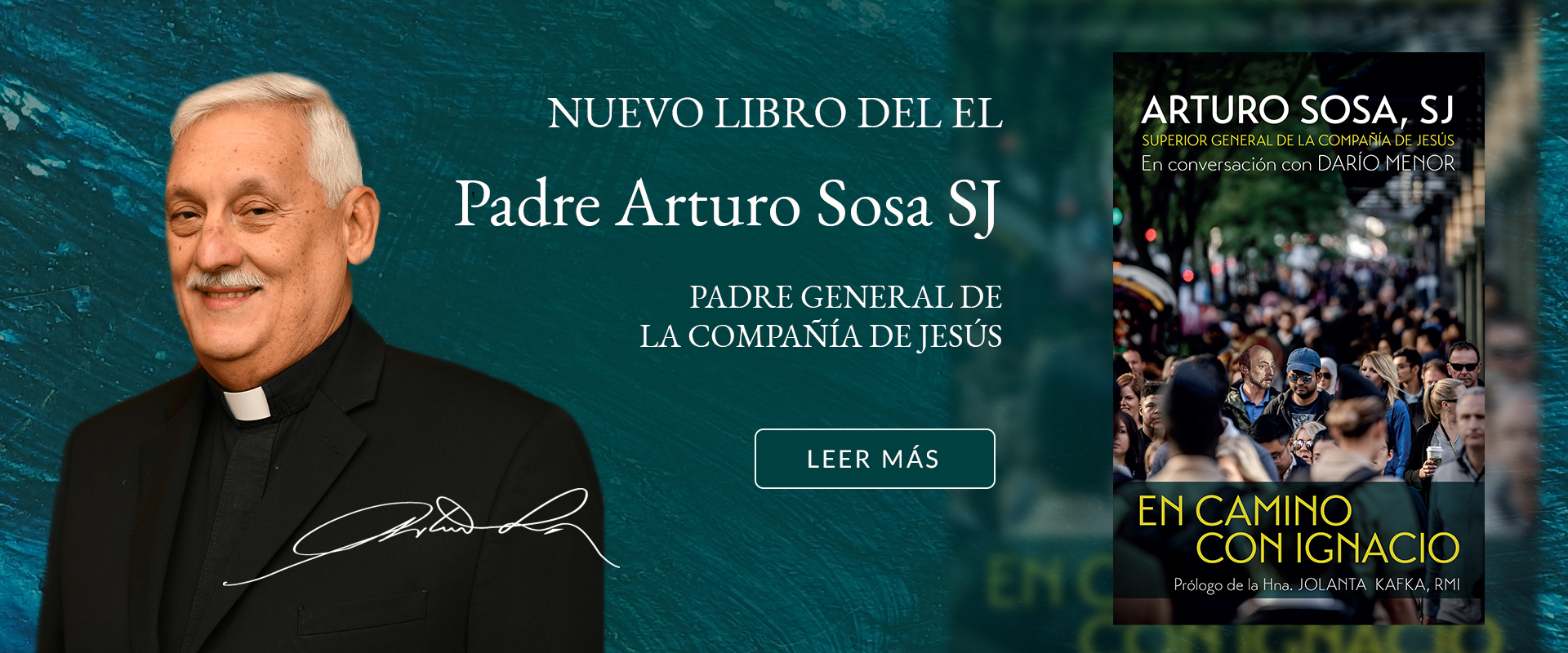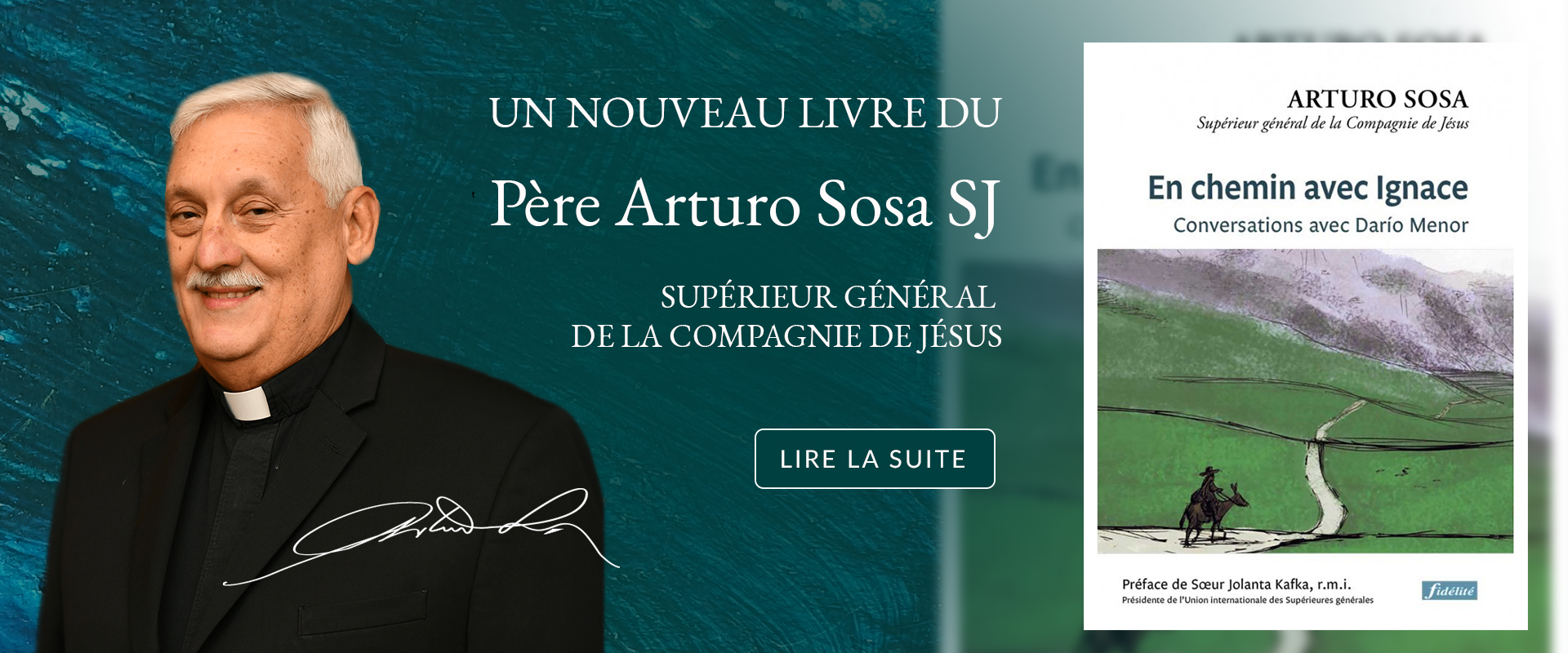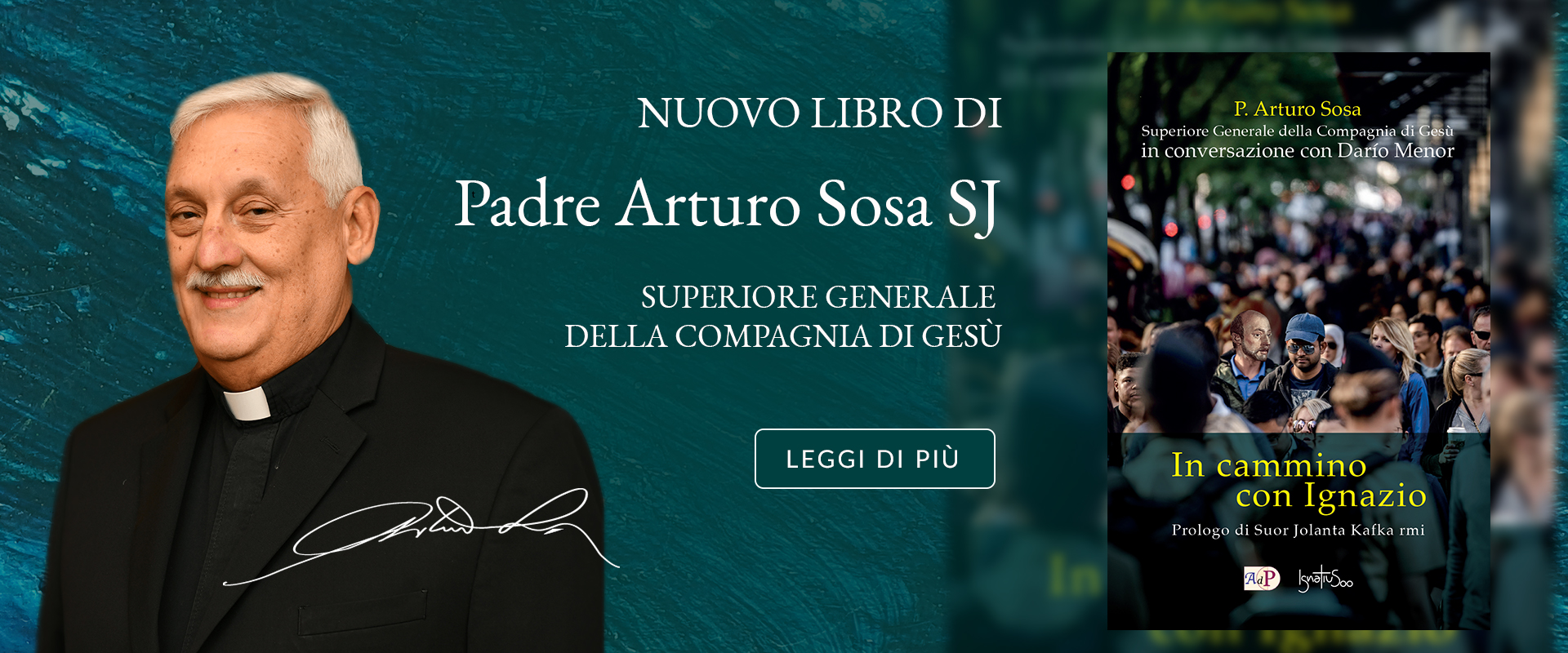During this Ignatian Year, we are publishing a series of homilies that Fr. General Kolvenbach held on the feast days of St. Ignatius. In this homily, Fr. Kolvenbach focuses on Ignatius’ priestly ordination.
Church of the Gesù, July 31st 1987
This year, celebrating the Lord’s Eucharist in honour of Saint Ignatius, we need to highlight and meditate on a particular moment in Loyola’s apostolic life. Exactly four hundred and fifty years ago, on June 24th, the day of the nativity of Saint John the Baptist, Master Ignatius and his companions received their priestly ordination in a small private chapel in a Venetian palace. This priestly ordination, which followed all the rules, was immersed however in a very special atmosphere because it was faithful to the Spirit who animated the lay pilgrim Ignatius’ apostolate and was also to animate Ignatius the priest’s apostolic mission and testimony of gratuity.
Ignatius the layman was already deeply marked by the Lord’s words: “You received without charge, give without charge” (Mt 10:8). It was enough for Ignatius to consider his own person – the Spiritual Exercises tell us – in order to discover God our Father’s gratuitous love because his life, like many of our lives, deserved – I quote Saint Ignatius – “new hells in which I should be tormented forever” (Sp. Ex., 60). This is the gratuitousness of the love of God our Father, who loved us for first while we were sinners. It was enough for Saint Ignatius to see the Lord Jesus’ cross with his pierced side to feel the divine gratuity of Christ’s love, “He is the Creator, he has stooped to become man… to die for our sins” (Sp. Ex., 53). And it was sufficient for him to consider the reality of men and of every-day things around him to discover in them that the Spirit – He who is love from above – gratuitously fills the entire universe, transforming our joys and sorrows into a great Pasch if our answer dares clothe itself in the gratuity of love “in deeds rather than in words” (Sp. Ex., 230).
Saint Ignatius wished to live this testimony of God’s gratuity which marked his lay pilgrim’s life as an itinerant priest. And so he was not ordained priest for a particular diocese or place, but to be apostolically available in the service of the Vicar of Christ on earth in order to be able to preach the word of God anywhere in the world and reconcile men and women with their Saviour through the sacrament of reconciliation. Their priesthood – one of the companions said later – would not be that of Saint Peter, which confirmed the existing Churches in their communion, but that of Saint Paul, who travelled throughout the world to announce the crucified and risen Lord where he was not yet or not well known. It was a priesthood for the mission, marked by the gratuity of this apostolic availability which allows itself to be sent where the Lord of the vineyard wants to need our energies, our riches and also our weaknesses.
But Saint Ignatius invested this Venetian priestly ordination with another aspect of the testimony of gratuity. Following the Lord who gratuitously revealed the heart of God his Father, Saint Ignatius would have liked to preach the crucified and risen Lord in true poverty. A few days before their ordination Saint Ignatius and his companions renewed their vow of total and perpetual poverty: they would all be ordained on the basis of voluntary poverty. According to the words of the gospel itself, they received the priestly ordination gratuitously in order to be able to give themselves gratuitously to the people of God. Later, struggling with the text of the Constitutions, though he accepted institutions and residences, churches and colleges for the announcement of the Kingdom of God, Saint Ignatius never ceased imposing rules so that they might maintain the testimony of apostolic gratuity without which it is not the crucified and risen Lord who is preached.
In present-day mentality man is worth what he produces and earns, and a group of men counts to the extent that it does things. Thus apostolic life, lived in the Church by a lay person, priest, monk or nun, easily risks being evaluated and judged on the basis of its efficacy and the resonance of its activity. Saint Ignatius himself risks being admired as a professional organizer. But, for his Lord and following his Lord’s example, Ignatius wished to be recognized only as a gratuitous witness of what he never ceased to receive gratuitously from his divine Majesty, the Holy Trinity. Because of this, Saint Ignatius and his companions did not plunge into apostolic activity after their ordination in Venice but, in the wake of the Lord who before going to announce the Kingdom withdrew into the desert, they dispersed in small groups in the cities of Northern Italy to allow themselves be seized by the Lord alone in absolute silence, convinced that they could not give what they had not first received gratuitously from God. It was only after this that they were to gratuitously give the best of themselves, preaching the word of God, caring for the sick and helping whoever was spiritually or materially poor.
They learnt from the Eucharist – each time again and according to concrete forms – to re-invent how to always gratuitously give what they received gratuitously from God himself. This is not the mentality of our time but it is God’s paschal way and our choice when we receive this evening, in the spirit of gratuity to which Saint Ignatius bore witness, the Body and Blood of the Lord.
Read the other homilies here.


